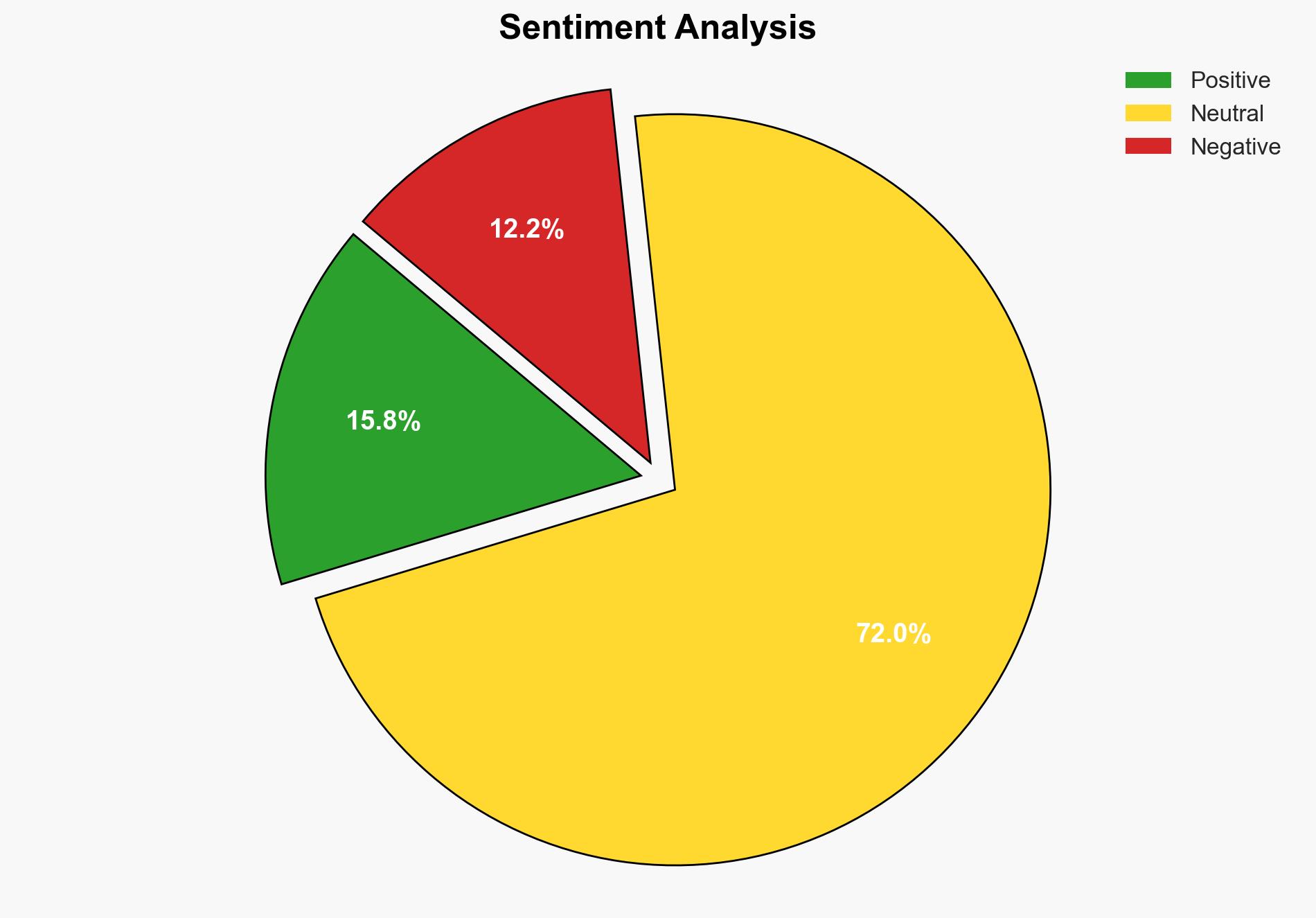Kurdish group PKK declares ceasefire with Turkey – BBC News
Published on: 2025-03-01
Intelligence Report: Kurdish group PKK declares ceasefire with Turkey – BBC News
1. BLUF (Bottom Line Up Front)
The Kurdish group PKK has declared a ceasefire with Turkey, following a call from Abdullah Ocalan for the group to disarm. This development aims to end decades of armed conflict in southeastern Turkey, which has resulted in tens of thousands of deaths. The ceasefire announcement comes amid political movements within Turkey and potential shifts in regional dynamics. The strategic recommendation is to monitor the implementation of the ceasefire closely and assess the potential for lasting peace and stability in the region.
2. Detailed Analysis
The following structured analytic techniques have been applied for this analysis:
SWOT Analysis
Strengths: The ceasefire could lead to a reduction in violence and open pathways for political dialogue and reconciliation.
Weaknesses: Historical mistrust and previous ceasefire failures may undermine the process.
Opportunities: Potential for improved relations between Kurdish and Turkish communities and economic development in southeastern Turkey.
Threats: Hardline factions within both the PKK and Turkish political landscape may resist the ceasefire, potentially leading to renewed conflict.
Cross-Impact Matrix
The ceasefire may influence regional stability, particularly in neighboring Syria and Iraq, where Kurdish groups are active. A successful disarmament process could reduce tensions and military engagements in these areas, potentially impacting broader geopolitical dynamics in the Middle East.
Scenario Generation
Best-case scenario: The ceasefire holds, leading to a comprehensive peace agreement and enhanced autonomy for Kurdish regions within Turkey.
Worst-case scenario: The ceasefire collapses, resulting in renewed violence and further destabilization of the region.
Most likely scenario: Initial progress is made, but significant challenges remain, requiring ongoing negotiation and international mediation.
3. Implications and Strategic Risks
The ceasefire presents both opportunities and risks. Successful implementation could improve national security and regional stability, fostering economic growth. However, failure could exacerbate existing tensions, leading to increased violence and humanitarian concerns. The situation requires careful monitoring to mitigate potential negative outcomes.
4. Recommendations and Outlook
Recommendations:
- Encourage diplomatic engagement and support confidence-building measures between the parties involved.
- Facilitate third-party mediation to ensure transparency and accountability in the disarmament process.
- Promote economic development initiatives in Kurdish regions to support long-term stability.
Outlook:
Best-case: The ceasefire leads to sustained peace and improved relations between Kurdish and Turkish communities.
Worst-case: Breakdown of the ceasefire results in renewed conflict and regional instability.
Most likely: Gradual progress with intermittent setbacks, requiring ongoing international support and intervention.
5. Key Individuals and Entities
The report mentions significant individuals and organizations involved in the ceasefire process:
- Abdullah Ocalan
- Devlet Bahceli
- Recep Tayyip Erdogan
- Duran Kalkan
- Ahmet Turk
- Pervin Buldan
These individuals are pivotal in the ongoing developments and their actions will significantly influence the outcome of the ceasefire and subsequent peace efforts.





